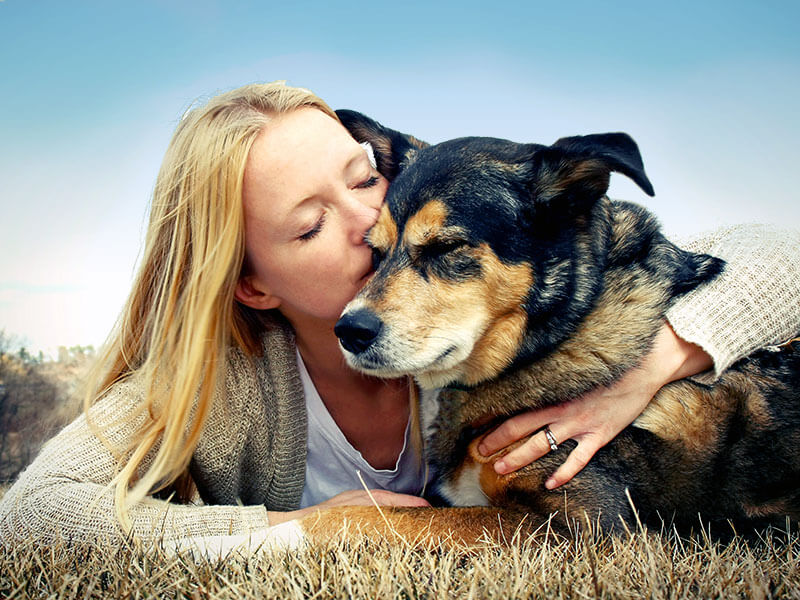Best Dog Behaviorist in Orange County: The Complete Guide to Finding the Right Dog Trainer
If your dog has been displaying undesirable behaviors, such as excessive barking, aggression, or anxiety, hiring a professional dog behaviorist in Orange County may be the solution you need. Understanding the factors to consider and the options available can significantly enhance your chances of successfully improving your dog’s behavior. This guide aims to provide you with insightful information on how to find the best dog behaviorist to cater to your canine’s unique needs.
Understanding the Role of a Dog Behaviorist
Before diving into the specifics of finding a dog behaviorist, it’s essential to grasp their role in dog training. A dog behaviorist specializes in understanding canine behavior and effectively addressing behavioral issues through various training methods. They employ evidence-based techniques and behavioral science to modify unwanted behaviors and enhance your dog’s overall well-being.
Key Differences Between a Dog Trainer and a Dog Behaviorist
While both trainers and behaviorists work towards improving your dog’s behavior, their areas of expertise differ:
- Dog Trainers: Focus primarily on teaching commands and basic obedience. They can often provide structured training sessions that teach dogs basic cues such as sit, stay, or come.
- Dog Behaviorists: Specialize in the underlying psychological aspects of behavior issues. They analyze the root cause of a dog’s behavioral problems and modify them through a behavior modification plan tailored to the dog’s individual needs.
Signs Your Dog May Need a Behaviorist
Before searching for an Orange County dog behaviorist, it’s crucial to identify whether your dog genuinely requires a professional. Some common signs include:
– Excessive barking or whining
– Aggression towards people or other animals
– Fear or anxiety in specific situations
– Destructive behavior when left alone
– Sudden changes in behavior due to a traumatic event
If you notice any of these signs, it may be time to consult a professional dog behaviorist to help get your furry friend back on track.
The Importance of Choosing the Right Dog Behaviorist
Selecting the right dog behaviorist is a critical step towards resolving your dog’s behavioral issues. A qualified behaviorist offers:
- Tailored Approaches: A good behaviorist will customize their training techniques to suit your dog’s specific needs.
- Structured Programs: Effective behaviorists utilize structured behavior modification plans that address the root causes of behavioral issues.
- Continuous Support: An ideal behaviorist will not only provide training sessions but also offer ongoing support and guidance as you and your dog navigate the training process.
How to Find the Best Dog Behaviorist in Orange County
Step 1: Research and Gather Recommendations
Start by asking for recommendations from friends, family, or your local veterinarian. Referrals from people you trust can lead you to highly qualified and reputable behaviorists.
You can also search online directories, professional organizations, and local dog training clubs. Consider looking for reviews, testimonials, and case studies on potential behaviorists to gauge their effectiveness and experience.
Step 2: Verify Credentials and Experience
When researching Orange County dog behaviorists, check their qualifications and experience. Look for certifications from recognized organizations such as:
– Association of Professional Dog Trainers (APDT)
– Certification Council for Professional Dog Trainers (CCPDT)
– International Association of Animal Behavior Consultants (IAABC)
These certifications indicate that the behaviorist adheres to professional standards and ethics, equipped with knowledge of canine behavior science.
Step 3: Schedule an Initial Consultation
Once you’ve narrowed down your options, schedule an initial consultation with the behaviorists you’re considering. This step is crucial as it allows you to:
1. Discuss your dog’s specific behavioral issues.
2. Assess the behaviorist’s communication style and ability to connect with both you and your dog.
3. Evaluate the training environment and methods used during sessions.
Step 4: Ask Relevant Questions
During your consultation, engage the behaviorist with pertinent questions to gauge their approach and philosophy on dog behavior training. Some questions to consider include:
– What is your training philosophy?
– How do you tailor your approach for individual dogs?
– Can you provide examples of successful cases similar to my dog’s behavior?
– What techniques do you prefer to use, and why?
– How often do you recommend training sessions, and for how long?
Their responses to these questions can provide valuable insight into whether they are the right fit for you and your canine companion.
Step 5: Observe a Training Session
If possible, ask to observe a training session with another dog and owner. Observing a professional in action allows you to witness their training methods and how they interact with both dogs and owners.
Step 6: Evaluate Progress
Once you’ve selected a dog behaviorist, ensure you regularly assess the progress your dog makes throughout training. A successful relationship with a behaviorist will include ongoing feedback and adjustments to the training plan based on your dog’s response.
Popular Dog Behaviorist Techniques
The methods employed by dog behaviorists can vary based on the individual dog’s needs and the behaviorist’s training philosophy. Some common techniques include:
Positive Reinforcement
This technique involves rewarding desirable behaviors with treats, praise, or toys to encourage repetition. Positive reinforcement builds a strong bond between the dog and the owner while mitigating unwanted behaviors.
Counter-conditioning
Counter-conditioning seeks to alter a dog’s emotional response to certain triggers. For example, if your dog is aggressive toward other dogs, a behaviorist might use desensitization techniques alongside positive reinforcement to decrease their reactivity over time.
Clicker Training
Clicker training relies on a sound (the click) to mark desired behaviors, making it clear to the dog what actions are expected. This technique is often coupled with treats and is effective in shaping behaviors.
Behavior Modification Plans
Many behaviorists develop individualized behavior modification plans that encompass various techniques suited to address specific behavioral issues. These plans often include practical strategies owners can implement at home.
The Cost of Hiring a Dog Behaviorist in Orange County
The cost of hiring a dog behaviorist can vary widely based on several factors, including:
– The behaviorist’s qualifications and experience
– The complexity of your dog’s issues
– Session duration and frequency
– The geographic location
In Orange County, you can expect to pay $300 per session. Some behaviorists may also offer package deals for a series of sessions, which can be more economical.
While investing in a qualified behaviorist may seem costly, the positive impact on your dog’s behavior and your overall quality of life can be invaluable.
The Importance of Ongoing Training and Support
Once you’ve gone through the training process, it’s essential to continue supporting your dog’s development. Behavioral training requires consistency and reinforcement in everyday situations. Regularly practicing commands and behaviors will help solidify the training while preventing regression.
Many effective dog behaviorists provide ongoing support, check-ins, or follow-up sessions to ensure lasting behavioral change. Continuing to engage in dog behavior training can significantly enhance your relationship with your pet.
Get a Consultation Now
Finding the best dog behaviorist in Orange County doesn’t have to be a challenging task. By following the structured process outlined in this guide, you’ll be well-equipped to identify a qualified professional who can address your pup’s behavioral issues effectively.
Remember to prioritize selecting a behaviorist who aligns with your training philosophy and can create a customized approach based on your dog’s unique needs. Investing time and effort into improving your dog’s behavior will yield significant rewards, fostering a calm and happy environment for both you and your furry friend.
If you find yourself facing behavioral challenges with your dog, take the first step today: conduct your research, consult with professionals, and set your canine companion on the path to success. With the right dog behaviorist by your side, you can overcome any behavioral hurdle and strengthen the bond with your four-legged friend.

